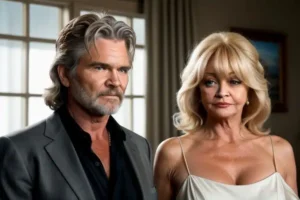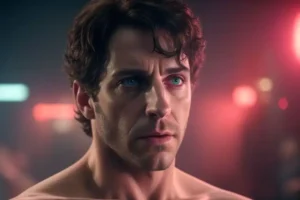Highlights:
- Michael Scott’s Transformation: Steven Carell’s portrayal of Michael Scott evolved into a more sympathetic character due to key writing decisions, particularly during Season 2’s “Office Olympics,” thanks to the direction of Paul Feig.
- Humor and Humanity: By layering Michael’s misguided attempts at humor with vulnerability and emotional depth, the show creators shifted perceptions from him being “the world’s worst boss” to a misguided, well-meaning colleague.
- Cultural Impact: Michael Scott’s journey resonates today, making “The Office” not just a hilarious sitcom but a profound exploration of human connection, making it endlessly rewatchable for audiences.
Introduction: The World’s Best (and Worst) Boss
Ah, Michael Scott. The man, the myth, the motivational poster gone rogue. If you’ve watched The Office, you probably have a love-hate relationship with this character. He’s the boss you simultaneously want to hug and hand in your two-week notice to. But one of the greatest revelations of the show is how Steve Carell masterfully transformed Michael from a cringeworthy caricature into a surprisingly deep human being we can’t help but feel for.
So, how did this happen? According to Paul Feig, director of some of the most iconic episodes, it took until Season 2’s “Office Olympics” to see Michael Scott displayed with true humanity. Let’s dive into the fascinating evolution of this character surrounded by a sea of ridiculous antics, awkward office moments, and heartwarming interactions.
The Early Years of Michael Scott: “World’s Worst Boss”?
Initially, Michael was crafted as a direct homage to David Brent, Ricky Gervais’ character from the original British version of The Office. This meant that by design, he came off as the type of boss who would make you consider faking an illness to avoid work. Here are some of the character’s early traits:
Early Characteristics of Michael Scott
- Utterly Unaware: Michael had no clue how unlikable he was; the “that’s what she said” jokes became more painful than humorous.
- Desperate for Approval: His antics often screamed, “Look at me! Love me!” in a way that made viewers cringe—not laugh.
- Socially Clueless: He stepped over social boundaries like it was a casual stroll in the park, causing perpetual discomfort for everyone involved.
All of this was the perfect recipe for a character who’d make you roll your eyes and groan. Early seasons seemed more interested in Michael’s cringe-worthy moments, leaving many viewers wondering: Could this guy ever be likable?
The Turning Point: “Office Olympics” and The Emotional Arc
Season 2’s “Office Olympics” was a pivotal episode and marked Michael’s shift into a more nuanced character. While orchestrating what seemed like a game in the office (who doesn’t love impromptu medal ceremonies?), the scene revealed layers of emotion that we had yet to see.
Key Moments from “Office Olympics”:
- Empathy Unlocked: As Michael tries to connect with his employees, Steve Carell’s performance brought unexpected vulnerability to the role, presenting a man not just in a quest for laughter but someone seeking human connection.
- Tears of Recognition: In a moment of genuine emotion, the man who seemed completely clueless showed he was, in fact, much more aware of how alone he truly felt.
- Gold Medals of Humanity: Offering a medal was more than a gag; it illustrated that Michael, for all his flaws, desired recognition and appreciation as an ordinary human would.
This episode served as a showcase for Carell’s talents; he wasn’t just the “boss with the world’s best coffee mug” anymore. He had depth, and viewers started to see him not just as an annoying supervisor but as a deeply flawed, yet ultimately well-meaning individual.
What Makes Michael Scott Relatable?
Okay, so he’s not the ideal boss. But here’s the kicker: Michael Scott is strangely relatable. The guy is eternally optimistic, hopelessly naive, and fundamentally human. Let’s break it down:
Relatability Factors
- Desire to Connect: Just like Michael, we all crave connection—whether through jokes that fall flat or heartwarming gestures that sometimes miss the mark.
- Misguided Humor: Haven’t we all made inappropriate jokes at the wrong time? Michael’s antics remind us of our most embarrassing moments.
- Flaws and Growth: The Office allowed audiences to watch Michael evolve, just like we do in real life. Heck, we’re all growing, stumbling, and sometimes falling flat on our faces!
The Reality of Goofy Bosses
Believe it or not, a goofy boss is more common than we’d like to admit. According to a study by Office Pulse, nearly 70% of employees say they have experienced awkward moments with their bosses. Here’s the breakdown:
| Trait of Michael Scott | Reality in Most Offices |
|---|---|
| Inappropriate humor | 65% of employees have dealt with it |
| Attempted connections | 58% say bosses often miss the mark |
| Lack of self-awareness | 70% feel their boss doesn’t recognize their mistakes |
In a world where the workplace can sometimes feel sterile and corporate, Michael Scott reminds us that a bit of goofiness can break the ice and even foster camaraderie—even if it’s at the expense of everyone’s dignity.
The Impact of Michael Scott on Pop Culture
Michael Scott has transcended the boundaries of television. He’s a meme machine! But seriously, think about the implications. This character did more than provide laughs; he also made waves through cultural commentary.
Here’s how he resonated:
- Meme Goldmine: Let’s face it, every moment of Michael’s life feels meme-worthy. From “You miss 100% of the shots you don’t take” to “I am Beyoncé, always,” his quotes are endlessly shareable.
- Workplace Archetype: Databases of anthropological studies have even cited Michael as the epitome of the “Bumbling Boss” trope, influencing how we depict workplace leadership in media.
- Heartfelt Lessons: Episodes like “Diversity Day” tackled serious topics with grace and humor, expanding the narrative potential of sitcoms.
When you think of the most memorable characters in television history, Michael Scott stands shoulder to shoulder with the greats—not just for his humor but for the life lessons he inadvertently imparts.
Final Thoughts: Michael Scott as a Mirror
At the end of the day, Michael Scott is the embodiment of what makes us human—flawed, humorous, hopeful, and inherently relatable. He’s a reminder that vulnerability and clumsiness can be as endearing as assertiveness and competence.
Why You Should Rewatch The Office
You may think you know The Office, but if you haven’t watched it again with this perspective, you’re missing the nuanced layers behind Michael Scott’s antics.
- Tear Jerker Moments: Revisit episodes like “Goodbye, Toby” or “The Job” and let yourself explore the emotional breadth of the character.
- Complex Interactions: Every time Pam rolls her eyes at a cringe-worthy Michael moment, recognize her genuine friendship that grows from understanding his quirks.
- Laughs That Pack a Punch: At its core, The Office reflects our own lives, vulnerabilities, and ridiculousness, all wrapped up in humor.
So next time you settle down for a rewatch, remember—to the world, Michael Scott may be “the world’s best boss,” but thanks to the depth and range of Carell’s performance, he became so much more: a friend, a mentor, and yes—even a little bit of an asshole. But aren’t we all?



